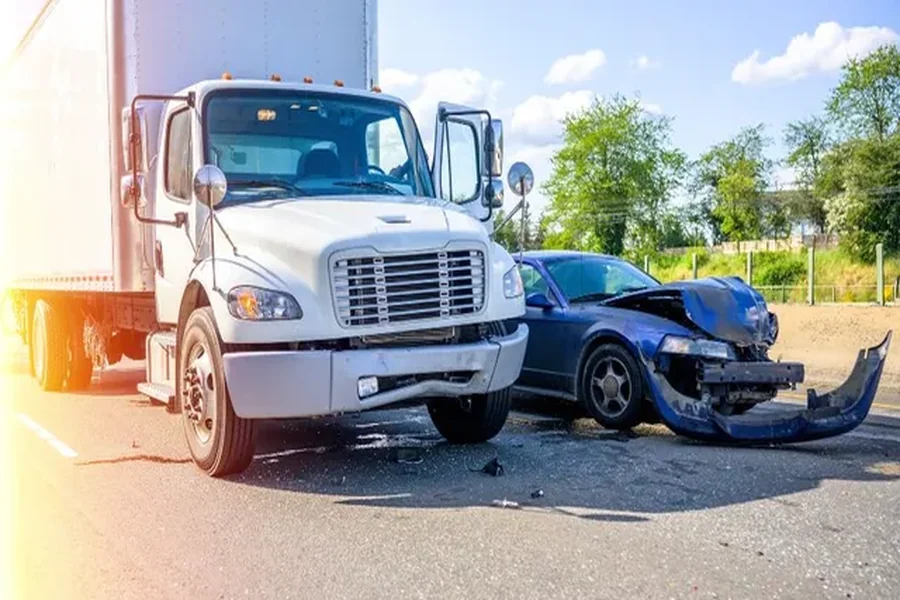Tacoma, Washington, serves as a major transportation hub for the Pacific Northwest, with Interstate 5 and State Route 16 carrying heavy commercial truck traffic through the city daily. The Port of Tacoma, one of the largest container ports on the West Coast, generates thousands of truck trips each year as goods move between the port and inland destinations. According to the Washington State Department of Transportation, Pierce County, where Tacoma is located, experiences hundreds of commercial vehicle accidents annually, many resulting in severe injuries due to the significant size and weight disparity between trucks and passenger vehicles.
Truck accidents are fundamentally different from other vehicle accidents, and if you have been involved in one and suffered damages, consulting with an experienced truck accident lawyer from Tacoma is essential for understanding the unique complexities these cases present. Due to the size and weight of trucks, crashes cause tremendous damage and injury, but these cases involve much more complexity beneath the surface.
Multiple Parties Involved
Multiple parties are involved in truck accidents. With a standard accident (car vs. car), it’s the drivers and the insurance companies. On the other hand, truck accidents may involve the driver, the trucking company, the loader of the cargo, and even the manufacturer of the vehicle. There may be shared responsibility on the part of each party, which means that responsibility will be more difficult to establish. It is time-consuming and difficult to sort through this complex web of accountability.
Regulations and Compliance
There are a lot of rules when it comes to trucks. Some of those regulations are hours of service for drivers and vehicle maintenance requirements. However, upon an accident, investigators would need to check whether these rules were followed. Even the slightest difference can affect the case. This second layer of regulation makes things more complicated, particularly since collecting and analyzing the data you need requires expertise.
Insurance Challenges
Trucking companies often have substantial insurance policies. While this might seem beneficial, it can lead to more complicated negotiations. Insurance providers for trucking firms have significant resources to contest claims. They may employ tactics to minimize payouts, requiring a thorough and strategic approach to negotiations. This can prolong the resolution process and make settlements more challenging to achieve.
Evidence Collection
Truck accidents require a much more substantial amount of evidence collection. According to the Federal Motor Carrier Safety Administration, investigators must scrutinize driver logs, maintenance records, electronic control module data, and black box information. Specialized knowledge is required to collect and interpret this data. Furthermore, a truck accident scene can be widespread, making it difficult to obtain physical evidence before it’s compromised or removed.
Severity of Damages
A truck accident tends to have more severe consequences. Heavy trucks can do immense damage to both vehicles and infrastructure. Injuries sustained in these types of accidents tend to be more severe and, therefore, result in higher medical expenses and extended recovery times. This complicates the calculation of compensation, taking both immediate and long-term circumstances into account.
Legal Expertise Required
Truck accident cases involve complications, which is why they are very different cases in a court of law and require specialized legal representation. An attorney unfamiliar with the work requirements and industry standards for these cases has a steep learning curve to overcome. They have to navigate a complex system of stakeholders. It is not easy to find this level of expertise, and it comes at a significant cost.
Cargo Considerations
The cargo that a truck is carrying can also impact the seriousness and complexity of a crash. For example, hazardous materials can lead to additional damages and require specific handling and cleanup equipment. Establishing liability may require an investigation of the cargo loading process and whether proper precautions were taken. That’s an additional complication the investigation must address.
Driver Fatigue and Training
Truck drivers are a significant factor in many truck accidents, as driver fatigue is a real concern. There are regulations in place to minimize this risk, but violations can occur. Determining if fatigue was a factor includes reviewing logs and possibly interviewing witnesses or consulting experts. Additionally, the driver’s training and experience may be examined, bringing another dimension to the case.
Financial Implications
There is usually more money involved in truck crashes. The injuries are more serious, the damage is worse, and the damages sought are higher. This may result in disputes between parties to either reach a settlement or pursue a verdict, resulting in long, drawn-out cases. These financial aspects can make cases more complicated and extend their duration significantly.
Conclusion
Truck accident cases have unique challenges, including multiple parties, complex regulations, and substantial financial implications. These cases are also more difficult because the harm and damages tend to be more severe, often requiring specialized skills and expertise. Understanding these factors is essential to properly navigate the complexities of truck accident litigation. By recognizing the unique aspects of these cases, parties can ensure they move through the legal process effectively and work toward a fair resolution.

